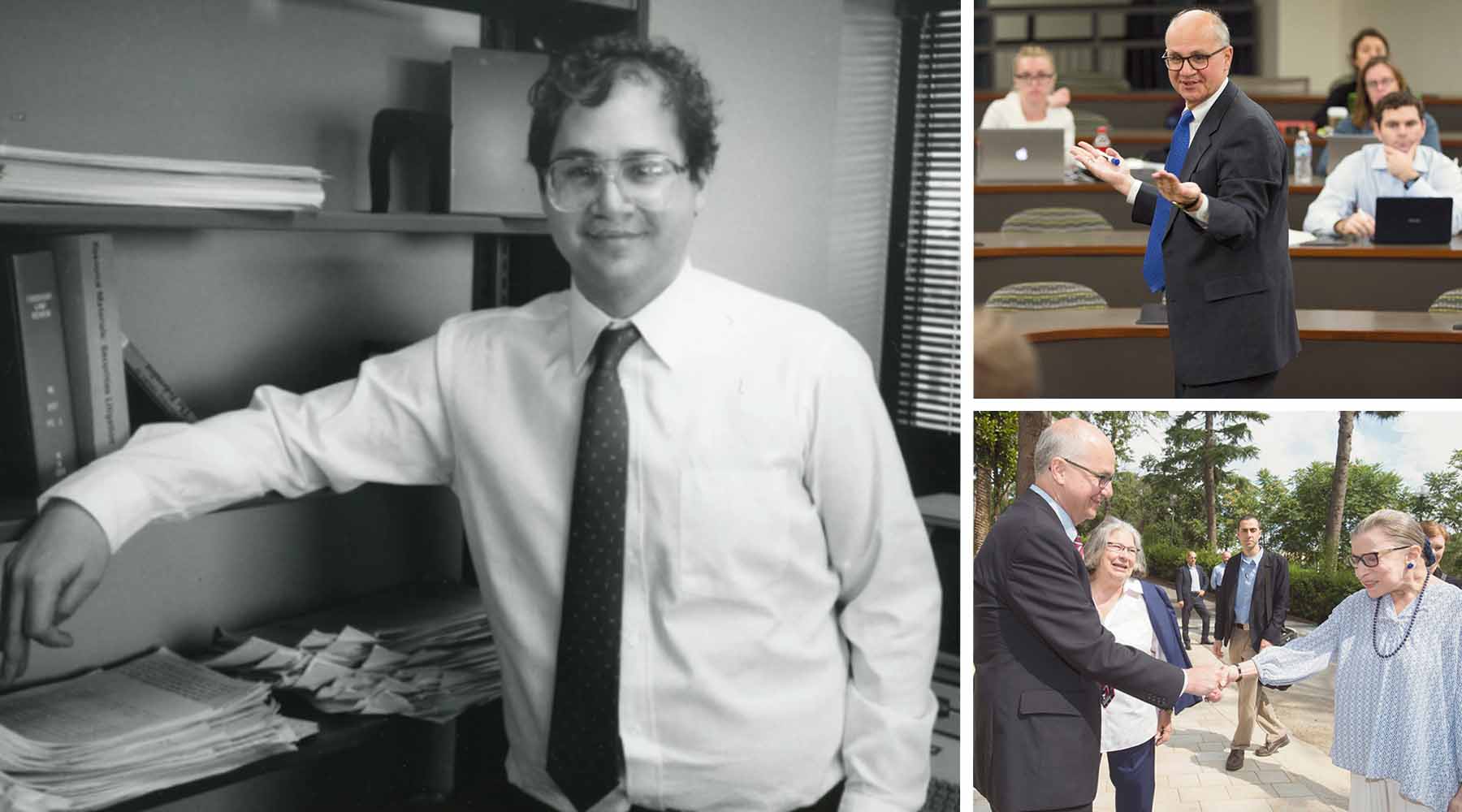Dean Michael J. Kaufman departs Loyola after 35 years of dedicated service
After 35 years at Loyola University Chicago School of Law—including five years as dean—beloved educator and administrator Michael J. Kaufman became dean of Santa Clara University School of Law in California on July 1. Known for his forward-looking pedagogy, his deep respect and care for every individual, and his sustained commitment to expanding equity and inclusion, Kaufman leaves a powerful legacy at Loyola.
Why did you choose teaching as a career, and what brought you to Loyola in 1986?
I’ve loved teaching ever since I helped my two younger brothers with their homework. When I graduated from law school, the idea of teaching law called to me, but I was told the best way to do this was to first get some real-life practice experience. I went to a Chicago firm and loved the challenging work. Loyola Professor of Law Anne-Marie Rhodes was of counsel to the firm then, and she told me that Professor Richard Michael—a legend at this law school—was taking some time off to write a book. So I got a job teaching Civil Procedure at Loyola for a year, and I never left.
You became associate dean of academic affairs in 2005, while David Yellen was dean. What accomplishments in that role are you most proud of?
They were collaborative accomplishments, and David was a great leader. He led the law school through tough financial and enrollment times in the midst of the Great Recession. We worked together on five-year strategic plans that included aligning scarce resources around our priorities in education and student support.
Together, we developed a requirement that all students have experiential learning, including a live-client experience, before they graduated. That was really ahead of its time. The ABA now requires this for all law schools.
The most innovative thing we did while I was associate dean was changing our part-time evening program into our Weekend JD hybrid program. We took a serious risk in doing that. An evening division had always been part of Loyola’s mission of making law school accessible to students with work or family commitments. About six years ago, we had so few evening students enrolled that we had to decide whether to continue it in another form or discontinue it. With faculty support, we took a leap of faith and created the Weekend JD, which has been a huge success by every measure.
When David Yellen left Loyola, you succeeded him as dean. Why did you want to take on this role?
It’s going to sound cheesy, but it’s true: I love this place. Working with David for 11 years made me realize I could make a tremendous impact on a school I love and go beyond that to lead educators in other schools on issues like expanding access to law school and providing an authentic education.
I served on my community’s school board for 12 years and do research around how people learn. When I became associate dean, I wondered, “What if legal education were founded on a true appreciation for the ways in which law students actually learn? And what would that look like?”
We developed much more hands-on, experiential learning; a curriculum that grows with students and their interests; and an emphasis on relationship-building skills. It’s pretty clear that students never learn by themselves, but in relationship with each other, their professors, and alumni.
So beyond the texts, we try to impart skills like empathy, engaged listening, interviewing, and counseling, all of which are indispensable to both learning and being a good lawyer. And we have an advantage here, in that the students we choose to admit are generally empathetic, compassionate people who want to serve others.
